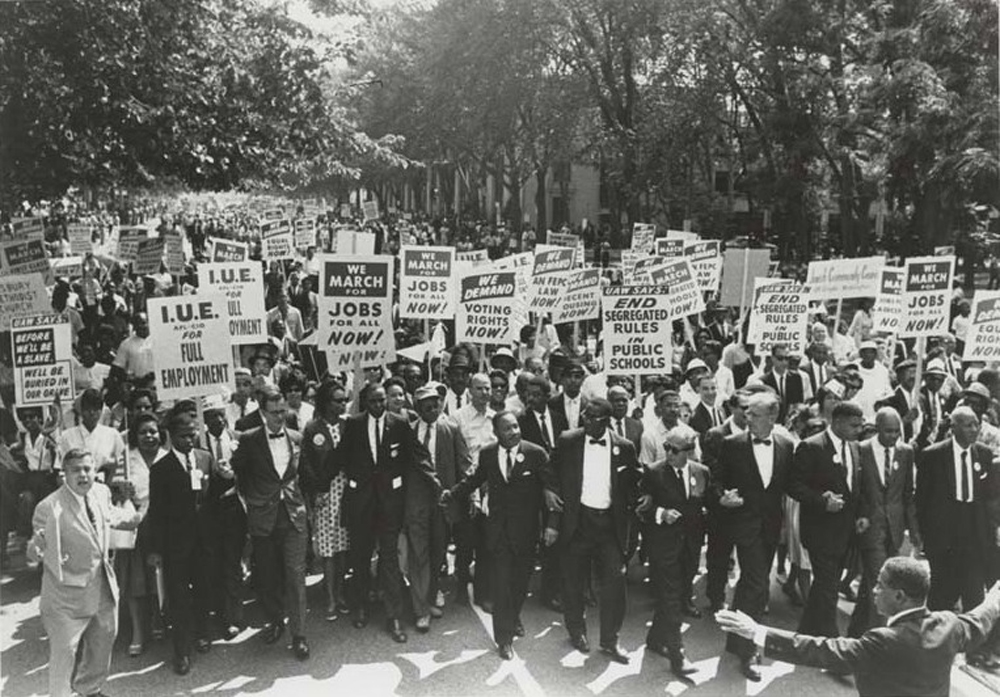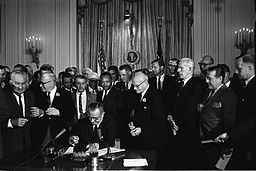|
Listen to this Article
|
by Meg Organ
The California Civil Rights Law Group commemorates the anniversary of the Civil Rights Act of 1964, signed into law on July 2nd. This extremely important legislation aimed to end segregation and protect people from discrimination.

Today, the 57th anniversary of the passage of that law, provides an opportunity to reflect on what the 1964 Act has accomplished and the gaps in its protections which still need to be addressed. The Civil Rights Act ended the “separate but equal” Jim Crow Laws. It also provided important protections against discrimination in the workplace. The Act outlawed discrimination based on race, color, religion, sex, or national origin in hiring, promoting and firing employees. Title VII of the act created the Equal Employment Opportunity Commission (EEOC) which is still instrumental in protecting against discrimination in the workplace on a national level. The EEOC works to investigate discrimination complaints and in some cases even sues employers on behalf of employees who were discriminated against.

as President Johnson signs the Civil Rights Act into law.
Unfortunately, there are limits to the coverage afforded by the Equal Employment Opportunity Commission and The Civil Rights Act. Protection is restricted based on the size of the employer and an employee has a very limited window in which they are able to take action. To file with the EEOC, an employee must work somewhere with at least 15 employees and a complaint has to be filed within 180 days of the occurrence of the illegal act.
Fortunately, California has even stronger protections against harassment, discrimination and retaliation under California’s Fair Employment Housing Act.
If you believe that your employer has discriminated against you based on race, color, religion, sex, disability, or national origin, please call the California Civil Rights law Group at (415) 453-4740 to schedule an intake interview.




